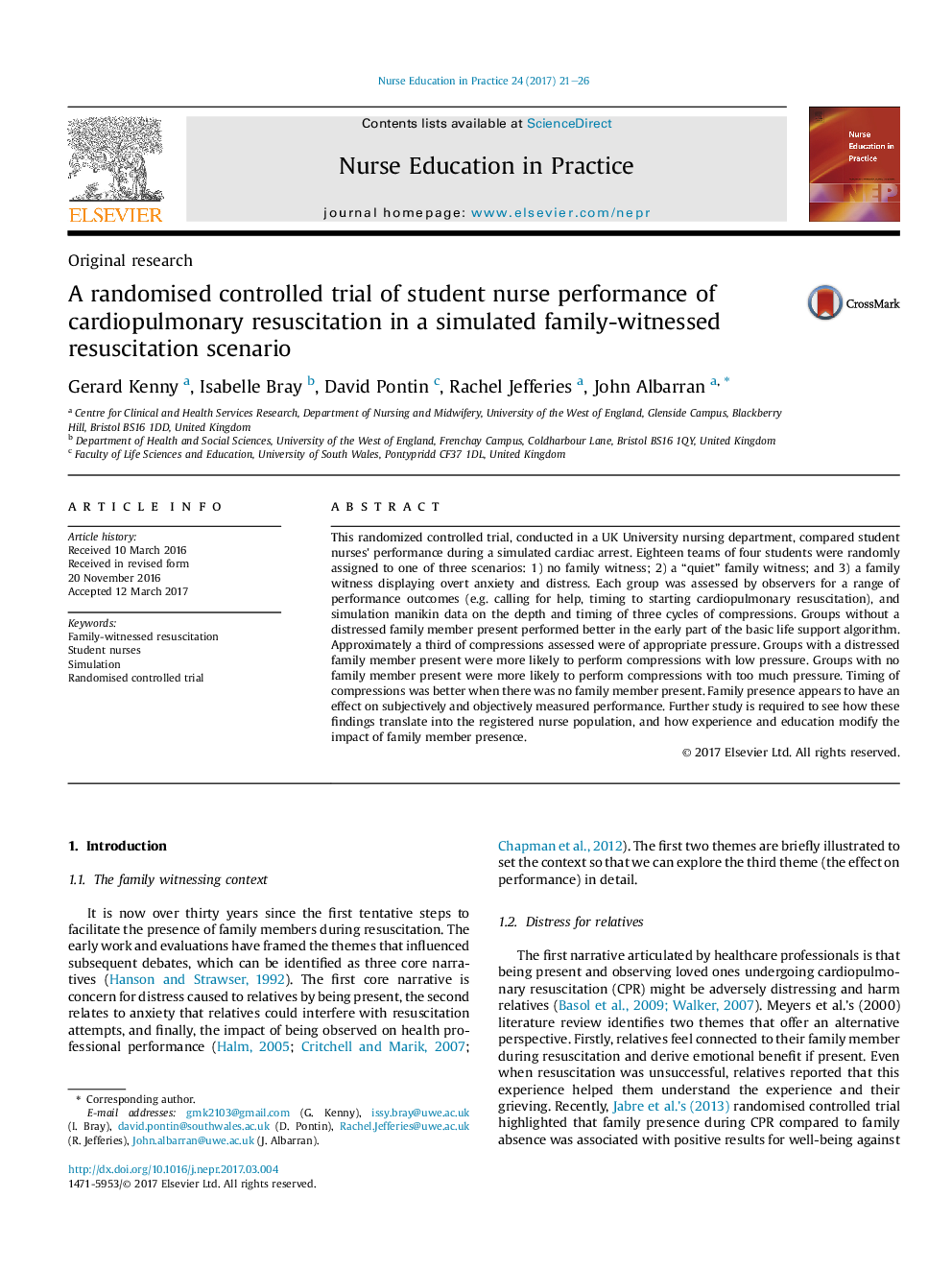| Article ID | Journal | Published Year | Pages | File Type |
|---|---|---|---|---|
| 4940490 | Nurse Education in Practice | 2017 | 6 Pages |
Abstract
This randomized controlled trial, conducted in a UK University nursing department, compared student nurses' performance during a simulated cardiac arrest. Eighteen teams of four students were randomly assigned to one of three scenarios: 1) no family witness; 2) a “quiet” family witness; and 3) a family witness displaying overt anxiety and distress. Each group was assessed by observers for a range of performance outcomes (e.g. calling for help, timing to starting cardiopulmonary resuscitation), and simulation manikin data on the depth and timing of three cycles of compressions. Groups without a distressed family member present performed better in the early part of the basic life support algorithm. Approximately a third of compressions assessed were of appropriate pressure. Groups with a distressed family member present were more likely to perform compressions with low pressure. Groups with no family member present were more likely to perform compressions with too much pressure. Timing of compressions was better when there was no family member present. Family presence appears to have an effect on subjectively and objectively measured performance. Further study is required to see how these findings translate into the registered nurse population, and how experience and education modify the impact of family member presence.
Related Topics
Health Sciences
Nursing and Health Professions
Nursing
Authors
Gerard Kenny, Isabelle Bray, David Pontin, Rachel Jefferies, John Albarran,
